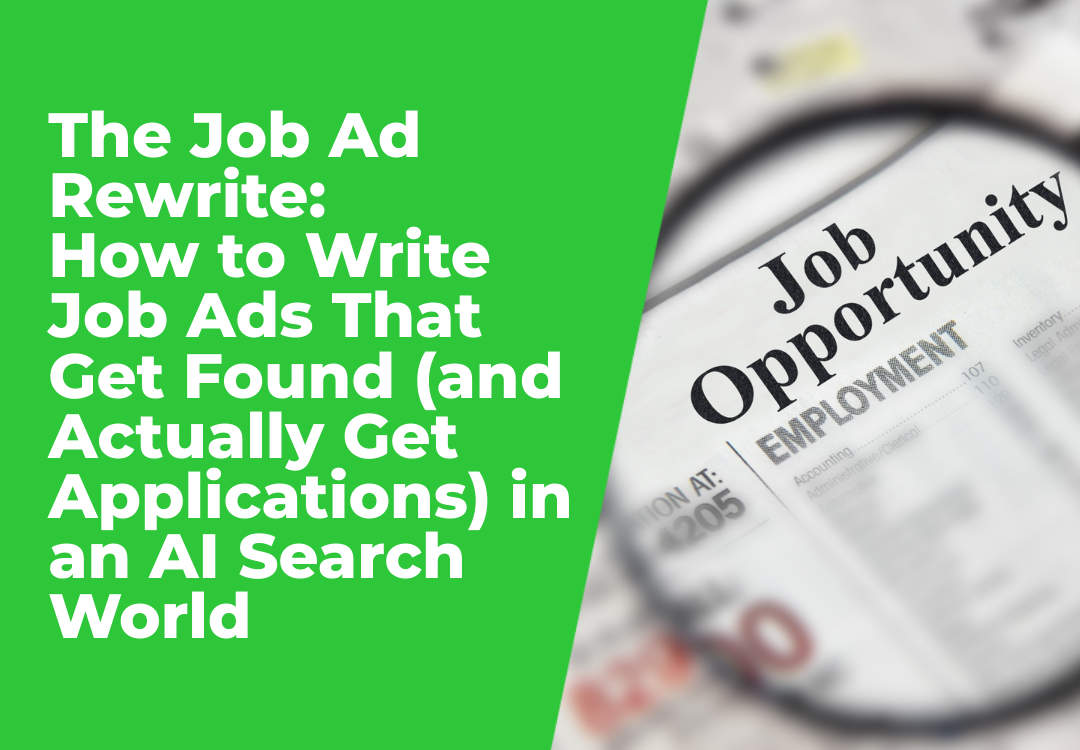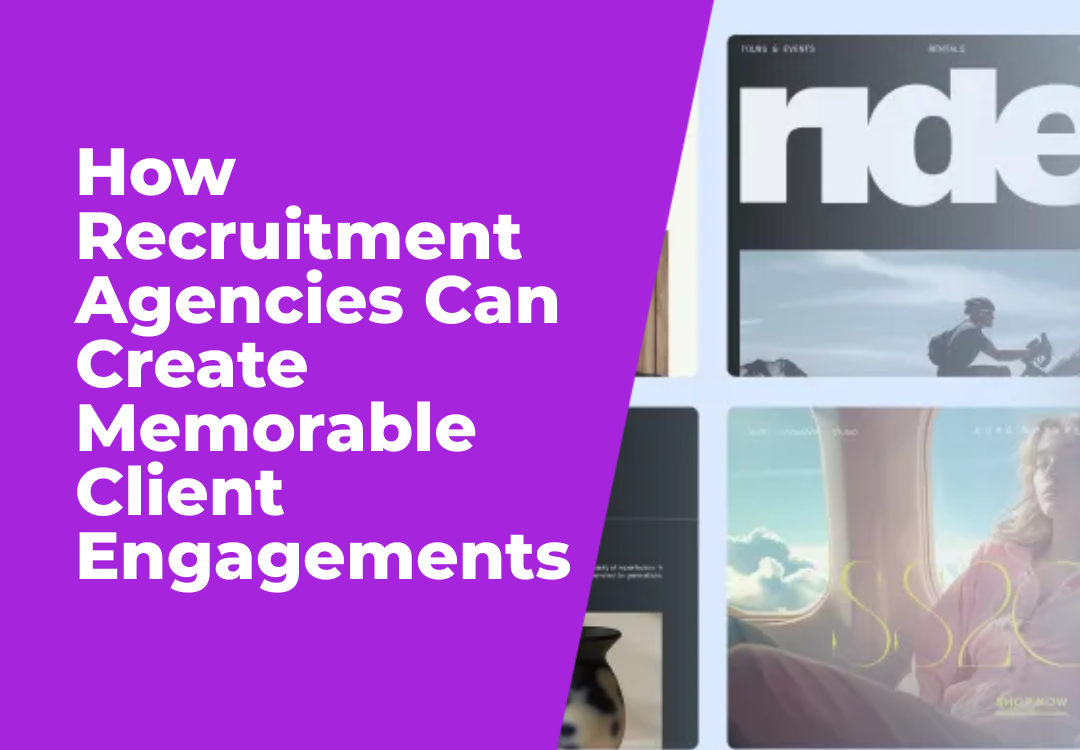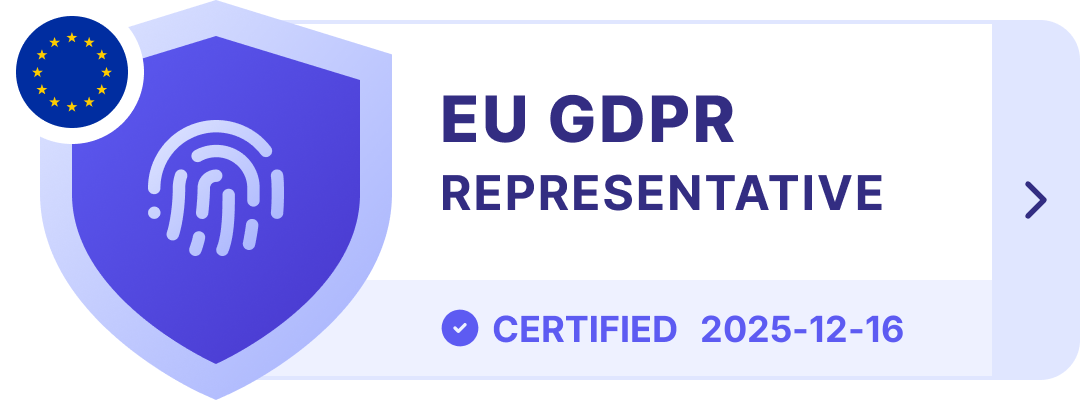5 Easy SEO Tips to Climb Search Rankings in Recruitment
Nicole Clarke • June 21, 2022
We’ve compiled five easy tips that businesses can use to climb search rankings with speed. We aren’t saying that you’ll appear at the top of the search results in a couple days, but we do guarantee that using these tips will help a business climb search rankings on all major search engines over time. Persistence and patience are key factors in search engine optimization, and while it won’t happen overnight, keeping these best practices top of mind will help your content rank.
Tip 1: keyword planning
It all starts with keyword planning
Recruitment businesses with great content on their websites tend to rank higher in search results, and great content focuses on keywords. Before creating a webpage, your company must first decide which keyword or keywords it wishes to rank for. Keyword planning is difficult, especially for businesses that do not know how to plan.
Your company cannot simply pick a word, type it a bunch of times, and cross its fingers that it will appear near the top of Google search results. This does not fool search engines. Keyword density is important, but it is not the only factor that search algorithms consider when ranking pages in search results, especially with Google's Rank Brain progress.
Your company cannot simply pick a word, type it a bunch of times, and cross its fingers that it will appear near the top of Google search results. This does not fool search engines. Keyword density is important, but it is not the only factor that search algorithms consider when ranking pages in search results, especially with Google's Rank Brain progress.
Make target keywords niche, targeted and relevant
When keyword planning for recruitment marketing, be sure to use niche recruitment words, and target keywords that are relevant enough to get your business appearing in front of the right people online. If your recruitment company wants to appear to the right local audience, you must be sure to be specific to your community. A local recruitment company is going to have a hard time appearing for the keyword “recruitment.” It’s not impossible, but it’s difficult for local companies to appear in the top few results for broad focused keywords. There is a much better chance to appear at the top of the search results if the keywords are narrowed down. If you target for your industry sectors and specialties, you are going to get more quality traffic and conversions. For example engineering recruitment New York, engineering jobs New York.
Tip 2: strengthen meta descriptions
Meta descriptions should contain your keywords
A meta description is a brief description of what your website contains; it is essentially a summary of your recruitment company's website in 160 characters. These, too, must be keyword-focused, and for smaller businesses like local recruitment businesses, having the right keywords in the meta description is critical.
Help guide customers from page to page
Proper meta descriptions not only help in search result rankings, but they also give your prospective customers a summary of exactly what they may be looking for. Customers want it easy, they don’t want to spend a long time browsing for recruitment companies — they want to find answers easily and the right solutions fast. Recruitment marketing is driven by perfecting this piece so the right people find you.
Tip 3: be unique
Search engine bots search for unique content
It’s tough for your business to be unique from the fifty other local companies that compete in your recruitment company’s industry. However, the content on your website should aim to be unique and somewhat different from the rest in order to stand out in the search rankings. The reason being that Google and other search engines search for original content when their bots are crawling websites. This means every site in a specific industry that has similar webpage copy will likely blend in, and the bots won’t declare those pages as original or unique. Don’t expect a local business page to appear high on the search rankings if it sounds exactly like every other local business page! Shake it up and get focused on what your recruitment business does individually and why you are different.
Tip 4: stay active everywhere online
The more online activity, the better
You business has to stay active online if you want to climb search rankings, make a name for yourself on places other than your company website. Your business can improve your local search by using data aggregators, or you can manually create listings on tons of directory sites. Get social and get blogging.
Online mentions increase search engine influence
One thing many recruitment businesses fail to understand is that business pages on reputable websites are so important! Social platforms like Facebook, Google, Twitter, LinkedIn are an easy way for your business to index your name across various sources on the web. Likewise, review sites are hugely important! The more your business is mentioned online, the greater the influence you will have on search rankings. Ask for reviews, don't stress if you get a bad review, just focus on getting other good ones to negate it. It is said that the occasional not perfect review will make your reviews more believable.
Tip 5: Write Blogs
Blogs help keep web content fresh
Blogs are not only fun to write, but also a way to continuously produce new website content. Google’s algorithm specifically calls for continuous web content and publishing if your business wants to appear high on the search rankings. Google is pushing web developers and content writers to keep websites from getting irrelevant or outdated, making content marketing a healthy recruitment company strategy.
Blog with a strategy in mind
Your business should establish a blog plan, no matter the industry. If that same recruitment company in Buffalo New York wanted to blog, maybe they’d write about the “Top 10 engineering recruitment success stories” or “How a bad engineering job interview ruined a man’s day.” These types of articles are relevant to the industry, and are loaded with keywords about their business. Shazamme's website platform has great blogging functionality and makes it easy to get started with blog publishing.
A blog presents a huge opportunity
It could be a funny blog, or serious industry stories, as long as the content that is being produced has a focus on their respective recruitment industry. That’s just one example, but there are tons of opportunities for businesses in any specific industry.
Conclusion: Content is king
Whether it’s keyword planning for the content you write, writing great meta descriptions, writing original content or blogging, it all involves the production of content. That’s because content is key to a successful strategy. Implement these ideas and monitor your rankings. You can use Shazamme's SEO tool to help you get on track and be more successful. While your rankings won’t shoot up overnight, your business has a huge opportunity to improve your search engine rankings and outrank your competitors to get more business through your doors.










